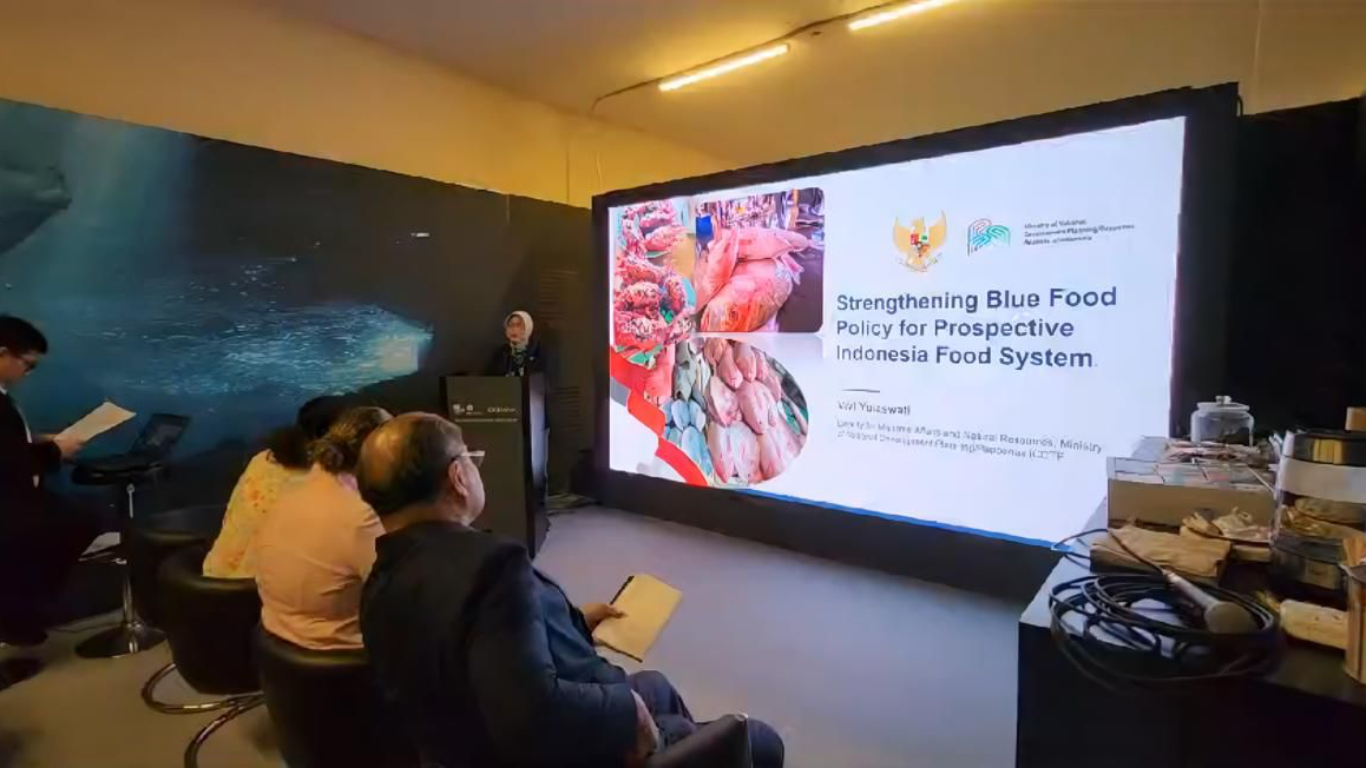Bappenas Outlines Green Economy and Low Carbon Development Strategy at COP 28
Development News - Thu, 07 December 2023

The Ministry of National Development Planning/Bappenas’ Deputy Minister for Maritime Affairs and Natural Resources, Vivi Yulaswati, opened the discussion session at the COP28 UAE Climate Conference in the Indonesian Pavilion, highlighting the urgency of inclusive green economic transformation to achieve Low Carbon Development (PRK).
This theme aligns with the United Nations Secretary-General's statement on global warming, which has serious impacts, including a 1.1°C increase in global temperatures and greenhouse gas emissions. Deputy Vivi stated that climate change causes a triple planetary crisis: climate change, increased pollution, and a decline in biodiversity. "Climate change not only threatens the health of the planet but also the well-being of communities and economies. It is not just an environmental issue but a complex and interconnected development challenge," Deputy Vivi expressed during the seminar titled "Transforming to Inclusive Green Economy Development Framework Towards Net Zero Emissions," held at the Indonesian Pavilion during COP28 UAE on Monday (4/12).
Indonesia has incorporated PRK and climate resilience into the National Long-Term Development Plan (RPJPN) for 2025-2045, making emissions reduction a concrete target for sustainable development. "Currently, we are focused on an environmentally friendly economy. Quality economic growth cannot be achieved without preserving the environment. Through green economic policies, Indonesia is expected to achieve an average GDP of 6.22% by 2045, reduce CO2-equivalent emissions by 86 million tons, and create 1.8 million environmentally friendly jobs," Deputy Vivi explained.
Deputy Vivi emphasized that green economic policies are not just about achieving net-zero emissions by 2060 but also about sustainable economic growth, making Indonesia an advanced nation. She also highlighted the crucial role of Blue Food in food security and nutrition, as well as its role as a livelihood and cultural foundation for coastal and riverine communities. "It is estimated that by 2050, the world's population will increase to 10 billion, requiring a larger food supply. According to the World Resources Institute UN analysis, we need an additional food supply of more than 56 percent. However, relying solely on land-based agriculture is not feasible due to limited land. Therefore, Blue Food is the solution to this problem," Deputy Vivi clarified during the ‘Blue Food: Future Food and its Opportunity’ talkshow on Wednesday (6/12) at the Ocean X Pavilion.
The National Blue Agenda is one of Indonesia's current focuses. It is expected that this agenda, which is also part of the targets of the National Medium-Term Development Plan (RPJMN) 2020–2024, will not only serve as an example for all countries in the world in addressing the maritime sector involving various parties but also as a solution to address sustainable marine resource management issues. As an initial step in the development and transformation of the aquatic food system, the Ministry of National Development Planning/ National Development Planning Agency will conduct a National Blue Food Assessment in collaboration with development partners. This assessment is a follow-up to the launch of the Indonesian Blue Economy Roadmap and is expected to provide substantive input into the development of the nation.
